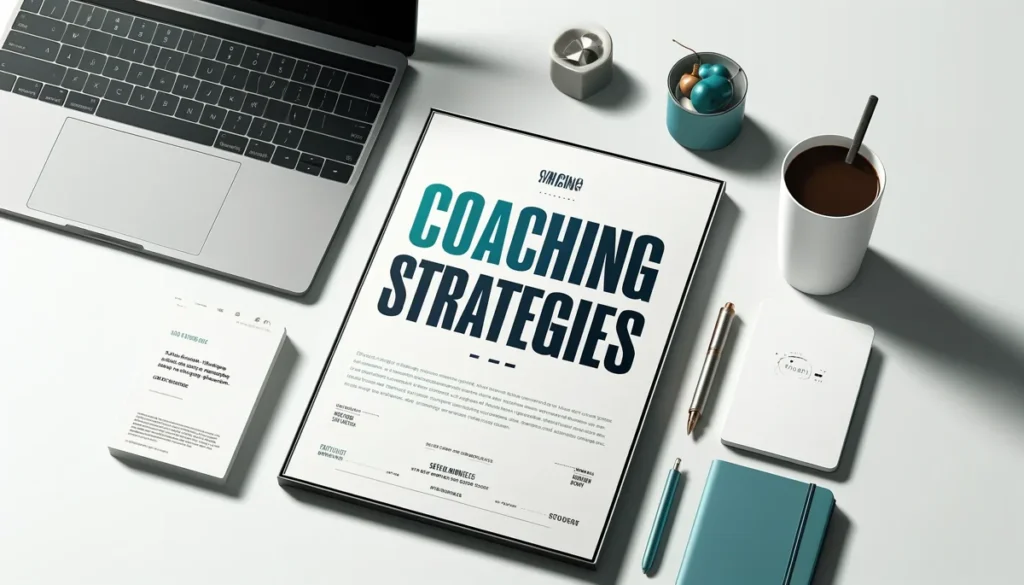
Growth and market adaptation pose significant challenges for many SaaS companies. Without strategic direction and expertise, progress often stalls, leaving teams frustrated and struggling to find their footing. This lack of guidance can lead to stalled growth and reduced market share, as teams become overwhelmed and motivation wanes in an increasingly competitive landscape.
SaaS coaching emerges as a solution to these challenges. Experienced coaches provide valuable insights and strategic direction, helping companies set clear goals, implement effective strategies, and achieve sustainable growth. This support is crucial for navigating complex market dynamics and seizing opportunities for momentum.
Why This Guide Matters: SaaS Coaching Essentials
Here’s what you’ll learn in this comprehensive guide:
- Understanding SaaS Challenges: Explore how coaching addresses unique issues like rapid tech changes, high churn rates, and fierce competition.
- Tailored Strategies: Learn the importance of customized advice for strategic planning, innovation, and growth.
- Core Coaching Components: Discover the key areas, including goal setting, customer-centric strategies, and product development.
- Choosing the Right Coach: Get tips on selecting a coach who aligns with your business needs for maximum impact.
This summary provides the highlights, but for a full understanding, keep reading!
Let’s dive in!
Why SaaS Coaching is Essential
SaaS companies face unique challenges that differ from traditional businesses. Rapid technological advancements, high customer churn rates, and intense competition require specialized strategies to stay ahead. This is where SaaS coaching comes into play.
Effective coaching helps identify and address these specific challenges. Coaches bring a wealth of experience and knowledge, providing tailored advice that aligns with the SaaS business model. They help streamline processes, enhance team performance, and drive innovation.
With SaaS coaching, companies can better navigate market complexities. It enables them to refine their strategies, improve customer retention, and achieve sustained growth. The right coach can transform potential obstacles into opportunities for success.
The Unique Challenges of SaaS Companies
- Rapid Technological Advancements
- SaaS companies must continuously innovate to keep up with fast-paced technological changes. This requires a strategic approach to product development and management.
- High Customer Churn Rates
- Retaining customers is crucial for SaaS success. High churn rates can significantly impact revenue and growth potential.
- Intense Competition
- The SaaS market is highly competitive. Companies need to differentiate themselves through unique value propositions and effective marketing strategies.
How Coaching Addresses These Challenges
- Tailored Strategies and Insights
- Coaches provide customized strategies based on the specific needs and goals of the company. Their insights help in navigating the unique challenges of the SaaS industry.
- Enhanced Strategic Planning
- Effective strategic planning is crucial for long-term success. Coaches assist founders in developing and executing comprehensive strategic plans that align with their vision and business objectives. This includes setting clear goals, analyzing the competitive landscape, and managing risks, all of which contribute to a more focused and resilient business strategy.
- Expert Guidance
- Navigating the complexities of the SaaS landscape can be challenging. Coaches offer expert guidance tailored to the specific needs of the business, ensuring that founders make informed decisions. With deep insights into market analysis, product development, and customer acquisition, coaches help founders avoid common pitfalls and capitalize on opportunities.
- Innovation and Adaptability
- Coaches encourage continuous improvement and innovation. They help companies stay adaptable and responsive to market changes.
Core Components of Effective SaaS Coaching
Effective SaaS coaching involves several core components that ensure founders receive the guidance and support needed to drive their business forward. Here are the key elements that make SaaS coaching impactful:
1. Understanding the SaaS Business Model
A deep understanding of the SaaS business model is crucial for effective coaching. Coaches help founders grasp the nuances of recurring revenue, customer acquisition costs, churn rates, and lifetime value.
Key Concepts:
- Recurring Revenue: Understanding monthly recurring revenue (MRR) and annual recurring revenue (ARR).
- Customer Acquisition Cost (CAC): Strategies to minimize CAC while maximizing returns.
- Churn Rate: Identifying factors leading to churn and implementing retention strategies.
- Customer Lifetime Value (CLV): Enhancing CLV through customer satisfaction and upselling.
2. Goal Setting and Performance Metrics
Coaches assist founders in setting clear, achievable goals and identifying key performance metrics to track progress. This ensures alignment with business objectives and facilitates continuous improvement.
Steps Involved:
- Define SMART goals (Specific, Measurable, Achievable, Relevant, Time-bound).
- Break down goals into actionable steps.
- Identify and track key performance indicators (KPIs).
Example KPIs:
- Monthly recurring revenue (MRR)
- Customer acquisition cost (CAC)
- Customer lifetime value (CLV)
- Churn rate
3. Customer-Centric Approaches
Putting the customer at the center of your business strategy is essential for SaaS success. Coaches guide founders in adopting customer-centric approaches to enhance satisfaction and retention.
Key Strategies:
- Customer Feedback: Regularly gather and act on customer feedback.
- Personalized Support: Offer tailored support and resources to meet customer needs.
- Engagement Programs: Develop programs that keep customers engaged and loyal.
Example Initiatives:
- Conducting regular customer satisfaction surveys.
- Implementing personalized onboarding processes.
- Creating loyalty programs to reward long-term customers.
4. Product Development and Innovation
Continuous product development and innovation are vital for staying competitive in the SaaS market. Coaches help founders prioritize features, manage development cycles, and foster a culture of innovation.
Approaches:
- Agile Development: Implement agile methodologies for iterative product development.
- User-Centered Design: Focus on user experience and usability.
- Innovation Culture: Encourage a culture that embraces creativity and experimentation.
Example Activities:
- Conducting user testing and usability studies.
- Implementing a feedback loop for continuous product improvement.
- Organizing hackathons to stimulate innovation within the team.
5. Marketing and Sales Strategies
Effective marketing and sales strategies are crucial for driving growth in a SaaS business. Coaches provide insights into developing and executing campaigns that attract and convert leads.
Key Components:
- Content Marketing: Create valuable content to attract and educate prospects.
- SEO and SEM: Optimize your online presence for search engines.
- Sales Funnels: Develop efficient sales funnels to nurture leads and close deals.
Example Marketing Strategies:
- Publishing regular blog posts and whitepapers to establish thought leadership.
- Running targeted social media campaigns to increase brand awareness.
- Implementing email marketing campaigns to nurture leads.
Effective SaaS Coaching Techniques for Organic Growth
Organic marketing is crucial for SaaS companies aiming to build an authentic brand presence without heavy reliance on paid advertising. A skilled coach can guide founders in marketing their products organically and effectively. Here are key strategies where coaching can make a significant impact:
1. Personalized Marketing Plans
A coach collaborates with founders to create personalized marketing plans tailored to the unique needs and goals of the business. These plans ensure that every marketing action aligns with the company’s objectives and resonates with its audience.
Steps Involved:
- Assess the Market Landscape: Understand the current market conditions and competitors.
- Identify Target Audience Segments: Define specific customer personas based on demographics, behaviors, and needs.
- Outline Specific Marketing Activities: Plan detailed actions such as content creation, social media campaigns, and email marketing.
- Align Actions with Company Objectives: Ensure that every marketing effort supports the overall business goals.
Example: A SaaS company targeting small businesses might focus on LinkedIn and local business forums, while a B2C SaaS product might prioritize Instagram and Facebook.
Illustrative Table:
| Target Audience | Primary Platform | Content Type | Goal |
|---|---|---|---|
| Small Businesses | Industry Articles | Lead Generation | |
| Startups | Business Forums | Case Studies | Brand Awareness |
| B2C Consumers | Visual Content | Customer Engagement |
Steps for a SaaS Marketing Plan:
- Market Analysis: Evaluate the competitive landscape and market trends.
- Audience Research: Create detailed buyer personas to understand customer needs and preferences.
- Content Strategy: Plan content types and distribution channels that best reach the target audience.
- Engagement Tactics: Develop strategies for engaging with the audience on social media and other platforms.
- Performance Metrics: Define key performance indicators (KPIs) to measure the success of marketing activities.
2. Content Strategy Development
Content is the lifeblood of organic marketing. Coaches assist founders in crafting robust content strategies that engage the audience and enhance visibility.
Components:
- Identify content types (blogs, videos, infographics).
- Create an editorial calendar.
- Ensure consistency in content production.
- Emphasize SEO and keyword research.
Example: A SaaS startup can boost its organic reach by publishing weekly blog posts optimized for keywords relevant to their industry, supplemented by monthly video tutorials.
3. Building Thought Leadership
Establishing thought leadership is vital for SaaS companies to gain credibility and trust. Coaches guide founders in creating insightful, valuable content that addresses the pain points of their target audience.
Example Activities:
- Publishing whitepapers and eBooks.
- Contributing to industry blogs and forums.
- Speaking at webinars and conferences.
Actionable Steps:
- Share unique insights on emerging industry trends.
- Offer actionable advice based on real-world experiences.
- Engage in meaningful discussions on relevant platforms.
4. Social Media Engagement
Effective use of social media can significantly boost organic marketing efforts. Coaches help founders identify the right platforms, develop a consistent posting schedule, and create engaging content.
Example: A SaaS company focusing on professional services might leverage LinkedIn for sharing industry insights and connecting with decision-makers.
5. Email Marketing Optimization
Email marketing is a powerful tool for nurturing leads and retaining customers. Coaches assist founders in designing compelling email campaigns that offer real value.
Key Elements:
- Educational newsletters.
- Product updates.
- Personalized offers.
Example: A SaaS company can segment its email list to send targeted messages, such as onboarding tips for new users and advanced features for long-term customers.
6. Influencer Collaborations
Partnering with influencers can extend a company’s reach and build brand awareness. Coaches guide founders in identifying and collaborating with influencers who align with their brand values.
Steps to Effective Collaboration:
- Identify relevant influencers in your industry.
- Build authentic relationships.
- Create mutually beneficial content.
Example: A SaaS company offering project management tools might collaborate with productivity influencers to create tutorial videos and blog posts showcasing the software.
7. Customer Success Initiatives
Customer success is integral to organic growth. Coaches help founders develop programs that ensure customers achieve their desired outcomes with the product.
Example Initiatives:
- Creating comprehensive onboarding materials.
- Providing ongoing education through webinars and tutorials.
- Implementing feedback loops for continuous improvement.
Actionable Steps:
- Develop step-by-step onboarding guides.
- Host monthly Q&A sessions.
- Collect and act on customer feedback regularly.
8. Data-Driven Decision Making
Effective marketing requires constant evaluation and adjustment. Coaches provide tools and methodologies for tracking key performance indicators (KPIs) such as website traffic, lead generation, and customer engagement.
Example KPIs:
- Website Traffic: Use Google Analytics to monitor page views and user behavior.
- Lead Generation: Track form submissions and contact requests.
- Customer Engagement: Measure social media interactions and email open rates.
Illustrative Formula:
Conversion Rate = {(Number of Conversions)/(Total Visitors)}×100
How to Choose the Right Coach for Your SaaS Business
Selecting the right coach is crucial for maximizing the benefits of coaching in your SaaS business. Here are some key factors to consider when choosing a coach:
1. Industry Experience
Ensure the coach has substantial experience in the SaaS industry. A coach familiar with the unique challenges and opportunities in SaaS can provide more relevant and effective guidance.
Questions to Ask:
- How many SaaS companies have you worked with?
- Can you provide examples of successful SaaS businesses you’ve coached?
2. Track Record of Success
Look for a coach with a proven track record of helping SaaS businesses achieve their goals. Testimonials, case studies, and client references can provide insight into their effectiveness.
What to Look For:
- Client success stories
- Measurable results and outcomes
- Positive testimonials and reviews
3. Coaching Style and Approach
Different coaches have different styles and approaches. It’s important to find a coach whose style aligns with your learning preferences and business needs.
Consider:
- Do you prefer a hands-on, directive approach or a more supportive, advisory style?
- How does the coach handle accountability and follow-up?
4. Specialization Areas
Identify what specific areas you need help with and find a coach who specializes in those areas. Whether it’s content strategy, growth hacking, or customer success, specialized expertise can make a big difference.
Specialization Areas to Consider:
- Organic marketing
- Product-led growth
- Customer retention and success
- Content strategy and creation
5. Compatibility and Chemistry
A good personal and professional fit is essential for a successful coaching relationship. Make sure you feel comfortable and can communicate openly with the coach.
Key Aspects:
- Personality match
- Communication style
- Mutual respect and understanding
6. Availability and Commitment
Ensure the coach has the time and commitment to meet your needs. Regular, consistent sessions and availability for follow-ups are important for continuous progress.
Questions to Ask:
- How often do you conduct coaching sessions?
- Are you available for questions or support between sessions?
7. Cost and Value
Consider the cost of coaching and ensure it fits within your budget. Evaluate the potential return on investment based on the value the coach can bring to your business.
Consider:
- Pricing structure (hourly, monthly, per project)
- Package deals and long-term commitment discounts
- Potential ROI based on success stories
Conclusion
SaaS coaching is crucial for founders navigating the SaaS industry. It focuses on personalized marketing plans, strategic goal setting, customer-centric approaches, and continuous product innovation. Coaches offer guidance and support for sustainable growth. They help founders understand their business model, enhance leadership skills, and make data-driven decisions.
The benefits of SaaS coaching go beyond immediate growth. It helps founders understand their market better and improve customer retention. Coaches foster a culture of continuous improvement. They provide expert guidance and accountability. This keeps businesses focused and motivated, leading to better performance and a stronger market position.
Investing in coaching is invaluable as the SaaS industry evolves. Founders who embrace coaching gain a competitive edge. They can innovate and excel in a dynamic market. Whether you’re starting or scaling, a knowledgeable coach can transform your journey.


